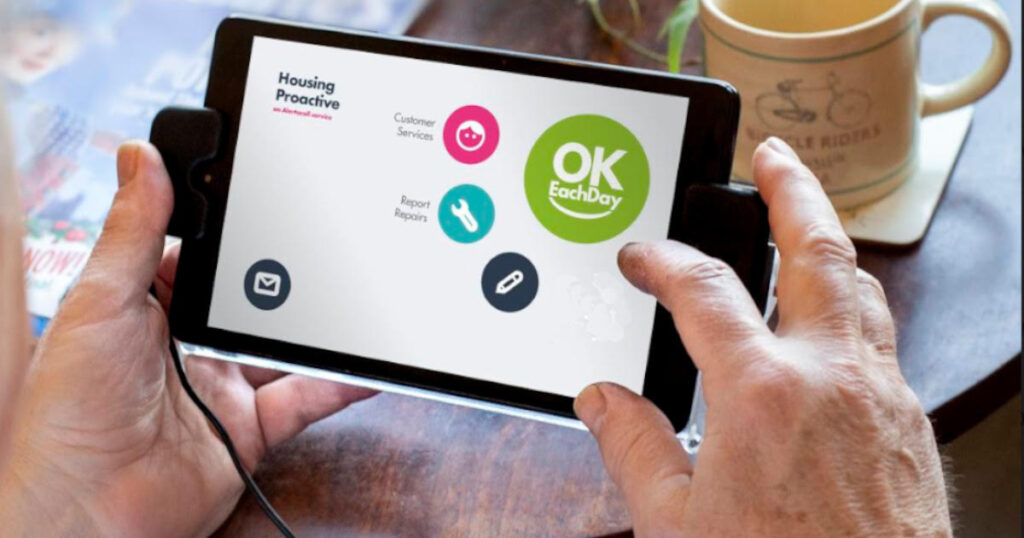
Leading technology provider Alertacall has published the results of its new survey examining digital engagement trends in social housing, providing a snapshot of the importance of technology for residents throughout the COVID crisis.
More than 200 professionals from the UK housing sector took part in an online survey which Alertacall carried out in partnership with the Chartered Institute of Housing over the Summer, measuring current perceptions of digital engagement to better understand the scope of digital transformation journeys for housing providers.
The main findings of the research project highlighted the barriers to driving digital engagement, ensuring residents have a suitable device and access to high-speed, reliable internet connections, enabling residents to make digital transactions whilst spending much more time at home.
The scope for enhancement in digital engagement is huge, with total digital transactions in social housing currently estimated at only 5% of all transactions according to a report from Inside Housing last month.
Of those surveyed, 88% highlighted shorter-term aims including planning to prioritise the digitisation of internal processes, with 77% keen to develop resident self-serve portals and mobile phone apps.
The prohibitive short-term cost of funding digital devices was cited by 37% as one of the biggest barriers to digital engagement, rather than looking at longer-term, life-time costs. The use of technology provides the opportunity to cut transaction costs by more than 90% compared with current telephone or face-to-face channels.
Martin Cutbill, Director of Alertacall, said:

“Our sector wide survey identifies that most housing providers have embarked on their digital journey, with many positives to be drawn in terms of technology and systems provided to housing colleagues. However, helping to improve residents’ lives by transitioning to digital services clearly presents many important challenges and risks slowing the move away from the more expensive current channels, if the issue of connectivity and lack of digital devices is not addressed by providers.”
Although 60% of housing providers had plans to provide communal WiFi, only 20% currently have this in place, with 34% expecting to provide free home WiFi included as part of rental costs.
Furthermore, only one in six of those surveyed included Digital Switchover as part of their longer-term digital engagement projects, with the switchover from the analogue telephone network to calls made by Voice over Internet Protocol due by 2025. The impact of the switchover may include hard wired systems such as smoke alarms, as well as door entry and intercom systems no longer being operational.
Findings overview
Findings from the survey included:
Two thirds of providers supply a device to most or all of their staff enabling home-working, but the provision of devices for residents to encourage digital engagement is very low – just 6% on a widespread basis, although another 40% do so on a selective basis.
Just 44% of housing providers said they have already provided residents with a device, or at least have plans to do so, the remainder having no plans or are unaware of any plan.
Similarly, just a third provide or intend to provide internet connections into homes.
Providers future plans do prioritise the digitisation of internal processes (88%), again reinforcing potential efficiency gains. However, developing resident portals is seen as almost as important (77%) to improve the degree to which self-service management can eliminate more costly customer touch-points.
In order to realise these improvements, it is clear a high proportion have identified the need to provide digital training for residents as a critical step to increasing engagement levels (83%).
Alertacall’s Housing Proactive solution addresses these challenges by providing a digital touchscreen or tablet to every resident as part of the service, enabling access to remote housing management services.
For the full survey results and more info please visit: www.alertacall.com



